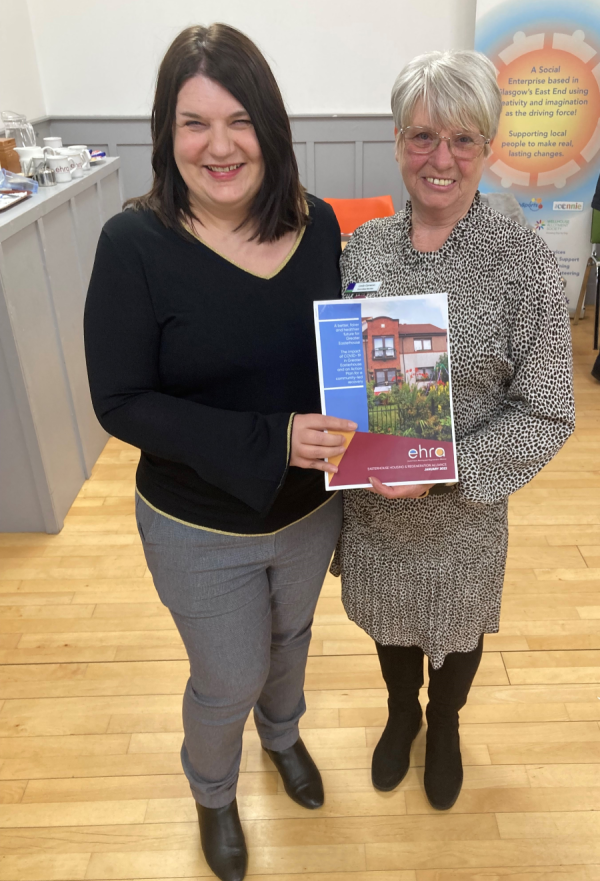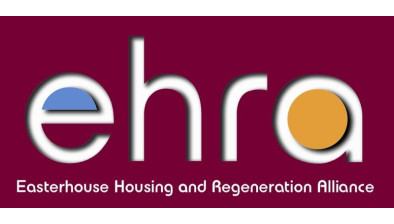Greater Easterhouse campaigns for change as report highlights Covid’s impact on deprived communities
A new campaign has been launched by community leaders in Greater Easterhouse to secure political support for a Covid Recovery Plan for the area, after a new report revealed the devastating impact of the pandemic on Scotland’s most deprived communities.

Linda Cameron and Susan Aitken
Greater Easterhouse is one of the most deprived communities in Scotland, with 18 out of 20 areas in Easterhouse ranking amongst the 10% most deprived areas in Scotland.
The independent report, conducted by JH Consulting and aimed at quantifying the health and economic impact of the pandemic on Easterhouse, has revealed how Scotland’s communities with the highest poverty rates were disproportionately impacted by the pandemic.
Easterhouse suffered a COVID-19 death rate that was 72% higher than the rate for Scotland as a whole. The death rate in Easterhouse was almost three times higher than the rate in Scotland’s least deprived communities.
At the same time, over 9,000 households in Easterhouse required assistance with essentials or accessing financial and welfare support, while over 3,000 households in Easterhouse required help to access food and other essentials.
As well as starkly different health outcomes driven by underlying poverty, the report has documented the serious social and economic harm experienced across the Easterhouse community with low-paid workers, in particular, at greater risk of exposure to the virus as many had to continue working in sectors such as essential retail.
The Easterhouse Housing & Regeneration Alliance, which represents the area’s housing associations and works closely with other community groups, has now launched a campaign to secure a local COVID Recovery Plan for Greater Easterhouse.
They are asking the area’s political representatives, Glasgow City Council and the Scottish Government to back a ‘3 Point Action Plan’ to deliver a recovery in Easterhouse. It is hoped that a Recovery Plan that centres on the specific challenges of Easterhouse, and provides the community with new financial support and powers will help drive better outcomes for Easterhouse in the areas of poverty, jobs and inequality.
The campaign, launched on Thursday in an event attended by Councillor Susan Aitken, leader of Glasgow City Council, has kicked off with the EHRA writing to the Leaders of all political parties in Glasgow to ask them to commit a COVID Recovery Plan for Greater Easterhouse in their manifestos for the forthcoming Local Elections.
Linda Cameron, chair of EHRA, said: “This report demonstrates what many people within our community already knew - that there is great inequality in Greater Easterhouse and that the pandemic exposed how poverty can affect your health, quality of living and your chances in life.
“The challenges of poverty and inequality are not new. The recovery from the pandemic will not be fixed in the short-term but it does underline the need to take far bolder and more urgent action to eliminate poverty and inequality in our community and across Scotland.
“Despite the stark statistics, the Report also shows the hugely positive impact of volunteers and normal people and families across Greater Easterhouse who organised to help their community through the hardest of times.
“It is this community spirit that makes Greater Easterhouse an incredible place to live. It also shows why - when the people of Greater Easterhouse are backed with resources and support - we can make incredible, positive change in our community. Our hope is that this report acts as a catalyst for more support for local people to make change happen and recover from the pandemic, and we look forward to working with Glasgow City Council, the Scottish Government, and everyone in our community to make sure this is a turning point for Greater Easterhouse becoming a better, fairer and healthier community.”









